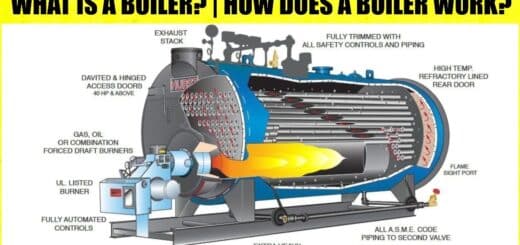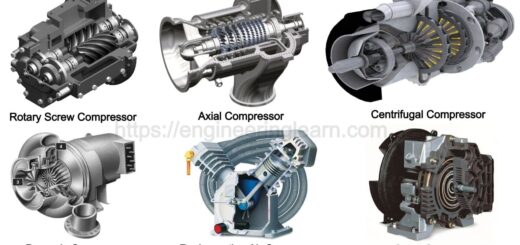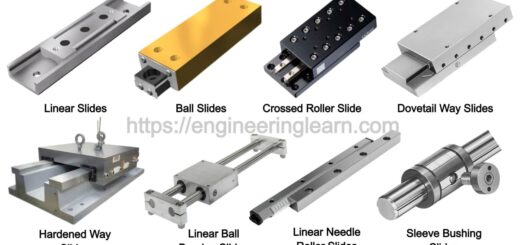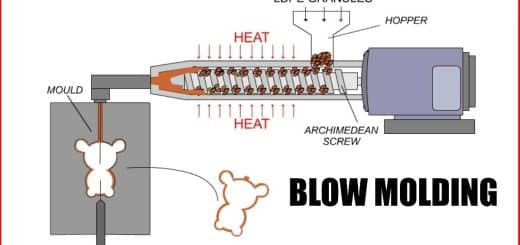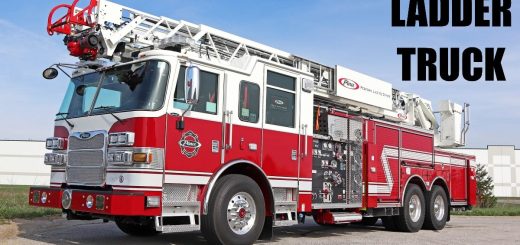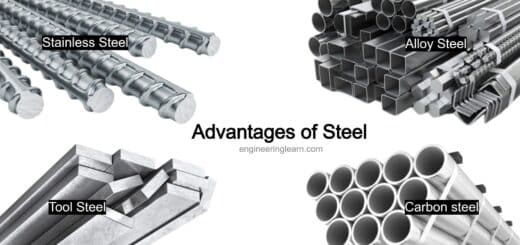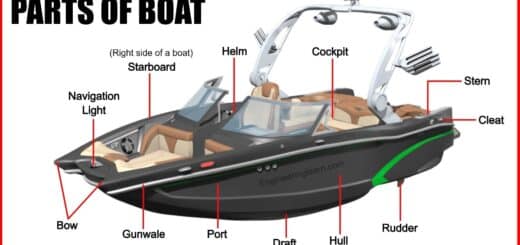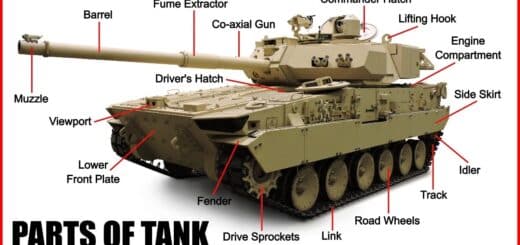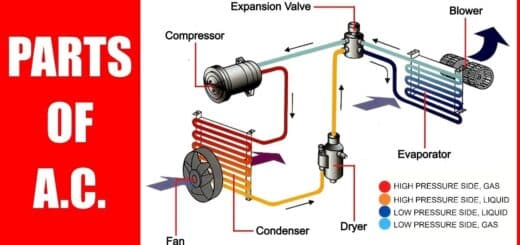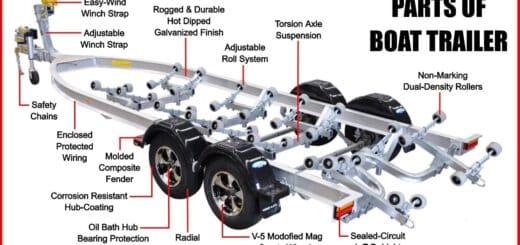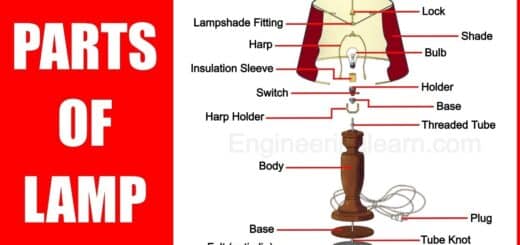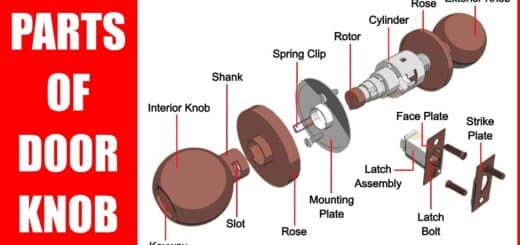8 Types of Generator – Definition, Working, Uses, Application, Advantages & Disadvantages [Complete Guide]
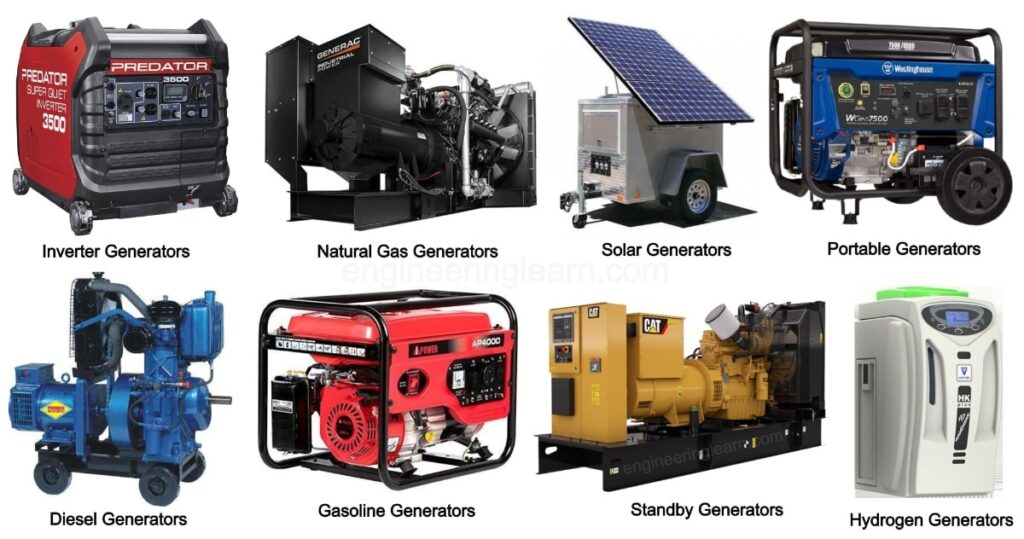
Introduction of Generator
Types of Generator: Definition, Working, Uses, Application, Advantages & Disadvantages :- Generators are referred to as those devices which work by using fuel sources like gasoline, natural gas, or solar energy in order to produce electricity, so that you can power a campsite, charge mobile devices, or run any essential appliance at home in case of any emergency.
Generators are found ranging from small to large that are found being ideal for almost every purpose. These can also be used essentially for permanent fixtures outside the home. It is important to know that the first generator was invented in the year 1831 by Michael Faraday.
Types of Generators
1. Portable Generators: ( Types of Generator )
Portable generators are found to be quite small, compact as well as easy to carry that are found working typically by the use of gasoline, propane, or solar energy as these are referred to be those fuel sources which are found to be readily available.
Gas and propane is known to be sourced both from a different gas station, whereas solar energy is found coming directly from the sun.
These types of generators are found to be the ones which can easily recharge the mobile devices or keep the lights on at nights. These generators are usually found to sacrifice the power production in terms of mobility, so these seem to be unavailable to produce the same amount of energy as larger standby generators. Their reduced size along with the capacity is responsible for using the portable generators at an even affordable prices and increases its workability.
Pros
- These are one amongst the cheapest option which is found to be available
- They work really well when there is a lack of access to the power sources.
Cons
- They need protection from the weather changes.
- They cannot be operated inside a home or a garage.
Portable generators are found to be most ideal for the purposes like camping or for any type of emergency situation.
2. Standby Generators: ( Types of Generator )
A standby generator is referred to as that generator which is usually costlier and puts it into an entirely different category other than that of the portable generators. A standby generator is known to be a semi-permanent feature at any property as it cannot be moved portably as compared to any other generator mentioned above.
These types of generators are found taking up more space as compared to a standard air-conditioning unit. These generators are most commonly found having a large fuel tank along with a commercial-grade engine accompanied with a high fuel efficiency that allows them to provide power to the entire property where electricity is required in the emergency situations.
These types of generators are found to be perfect for powering small cabins in order to back up the emergency systems as the standby generators are sometimes found being out fitted along with the connectivity of the Wi-Fi that allows the user to monitor the status of the generator by using a mobile application. Keeping the cost secondary, the main disadvantage of a standby generator is that they are found requiring regular maintenance in order to make sure that they are operational in case of any emergency.
Pros
- These generators ensure seamless switching within the systems, which clearly means that you do not need to worry about when the power offs.
- The continuous flow of power is guaranteed, which makes it useful whenever a permanent fix for power shortage is required.
Cons
- Highly priced if you need to run a high maintained project
- They need thorough and regular maintenance- without which, the engine can malfunction.
Standby generators are ideal for turning on the system on its own in response to which a power outage, and providing a home gets uninterrupted power.
3. Inverter Generators: ( Types of Generator )
Inverter generators are referred to as the home generators or generators which are usually whole and sole for the homes. But at the same time they differ in a way as they are found producing the electricity too.
A standard generator is usually the one which is found producing the electricity in a single-phase and at the same type cannot keep the flow of electricity steadily. These types of inverter generators are the ones which are found producing electricity in three phases wherein they generate a high-frequency alternating current (AC), which is then inverted in order to get a direct current (DC), and then finally inverted once more to obtain a stable AC output.
This process seems to be a bit complex although it actually helps in creating what is known as clean energy, or energy that is found being stable whenever it is in use. These types of generators are found to be suitable for use in sensitive electronics for instance phones and laptops. Due to the stable energy output, inverter generators are found operating quietly as compared to others.
Pros
- Their run time is found to be longer, quieter as well as they show maximum performance.
- They produce lower emissions and do not need to be refilled again and again.
Cons
- They cost more as compared to the portable generators.
- They are not that powerful to power heavy-duty machinery, tools, or even big properties.
Inverter generators are found to be most ideal for the protection of electronic equipment from any type of power surge.
4. Diesel Generators: ( Types of Generator )
Diesel generators are referred to as those generators which are found being fuelled by diesel instead of gasoline. Most of the generators in this category are found to be similar to the standby generators, as there are some inverter as well as portable diesel generators out there.
All those generators that run on diesel are found providing a more efficient power output as compared to the gasoline standby generators. There are cost benefits for buying a diesel generator too as the diesel generators are found being more fuel efficient as compared to the gasoline-powered models wherein you will need to spend less on the fuel over the long term.
These generators are referred to as those which can easily work well in the freezing temperatures if found being filled with the winter diesel fuel. Regular diesel fuel is found to be highly freeze and gel which prevents the generator from starting at the lower temperature. The low burning temperature of the diesel invertors is responsible for putting less strain on any of the electric engine as compared to either gasoline or propane which is responsible for allowing the diesel generators in order to have a higher level of durability as well as long life. Not only this, the diesel generators are also found producing harmful emissions that are found to be toxic if are inhaled directly.
Pros
- These generators are found to be highly durable as well as have a very long life.
- Easy to start even in lower temperature.
Cons
- Releases emissions that damages the environment.
- Not well suited to humid environments as the moisture can enter the fuel main which can ruin the engine immediately.
Diesel generators are found to be ideal for those customers who are looking for the long-lasting as well as easy to maintain generators that are found to be needed for the industrial use or as a whole-house standby.
5. Gasoline Generators: ( Types of Generator )
Gasoline generators are referred to as those generators which can run on a variety of different fuels, wherein one of the most common fuel is found to be used similar to the portable as well as the inverter generators that is gasoline. Any generator which is found being operated on gasoline can clearly fall under this type of category, which is responsible for making broad observations about them difficult. There are various powers as well as the features which are commonly found to be suitable for the purpose of a lightweight, portable generator that is found running on either gas or on gas-fuelled generators, whereas the inverter generator is found to be completely different.
Gas generators are referred to as the ones which are usually found having relatively straightforward controls as well as are lower in terms of pricing, this is what makes them ideal for all the inexperienced operators as well as the buyers which are found looking for options in limited budget. These types of generator are usually found emitting high rates, and thus run on a fuel that is found to be more expensive over the long run as compared to either propane, diesel, or natural gas.
Pros
- Highly cost effective.
- Highly portable as per needs.
Cons
- Produces high emissions.
- Creates unwanted noise and annoying sounds.
- Works less effectively in lower temperatures.
Gasoline generators are found to be ideal for the ones who are looking for some low budget generators and might need to use their generators infrequently.
6. Solar Generators: ( Types of Generator )
Solar generators are found to be one of the most expensive generators in terms of installation wherein the fuel is known to be renewable as well as free. These generators are found responsible for being ideal for the purpose of camping or for any emergency source of electricity.
Solar generators are responsible for being typically made accompanied with a built-in solar panel, which comes with a detachable solar panels that is found to be set up or angled in order to better absorb the rays of the sun. The only disadvantages of such type of generators is that they are found not working properly when it is dark outside, and they also are unable to produce a whole lot of power.
Pros
- Silent and do not produce any disturbing noise.
- Excellent for minimal electrical requirements.
Cons
- Quite slow in terms of charging the batteries to their full capacity.
- Really expensive as compared to fuel powered generators.
Natural gas generators are ideal for eco-conscious shoppers who are found affording high upfront costs for the whole-home solar generators, specifically the portable generator users who do not need a lot of backup power
7. Natural Gas Generators: ( Types of Generator )
Natural gas generators are referred to as those which are found running on natural gas and also tends to fall into the standby generator category although there seems be to some portable generators which are found working on natural gases. In comparison to diesel and gasoline generators, natural gas generators are found producing a significantly lower rate of emissions, which makes them a very great choice for backup power of the entire property.
Natural gas generators are found to be very durable which can even last for years if regular maintenance is taking place, though the initial cost of installation of these systems seems to be relatively higher. Another downside of such natural gas generators is that they are termed to be vulnerable in terms of extremely cold climates, so that might not be the best option for residents or the northern states resides.
Pros
- Causes very less disturbance.
- Burns cleanly without producing any waste.
Cons
- Not long lasting as compared to diesel generators.
- High installation costs due to their connection to running gas lines.
8. Hydrogen Generators: ( Types of Generator )
Hydrogen generators are found to be relatively new to the market as hydrogen generators are not easily found. These generators are found being fuelled by hydrogen gas and are thus designed with the internal fuel cells in order to help in managing the fuel efficiency of any particular system. There are advantages of purchasing a hydrogen generator as it is found producing a very high power output as compared to any other generator, and are also found to be sturdy as well as pretty resistant in order to impact the damage.
As there are so few hydrogen generators available in the market, they are not found being cost effective and it can take some searching in order to find a product that might meet specific needs of the user.
Hydrogen generators are found to be ideal for homes or businesses that are found requiring an uninterrupted power supply for the purpose of security or health applications.
